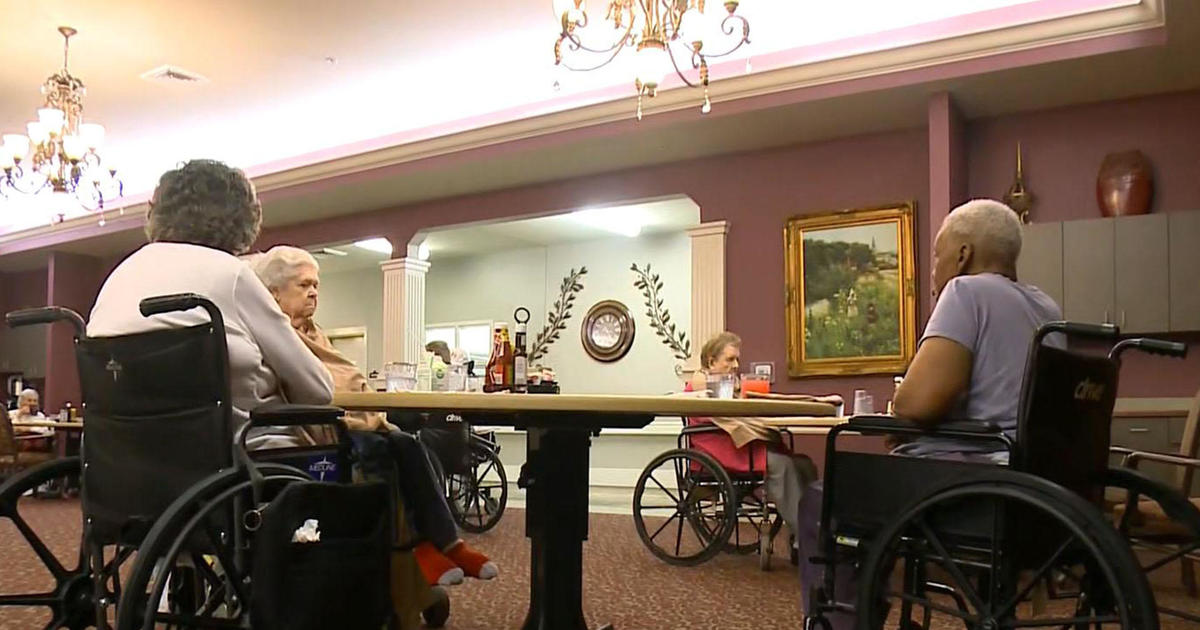Table of Content
This is why nursing homes try to get families to sign the paperwork as the responsible party - the nursing home can’t discharge the senior if he can’t live alone yet doesn’t have a payment source in place. If the nursing home is able to charge the family during this time period there’s no lapse in payment. Need for nursing facility services is defined by states, all of whom have established NF level of care criteria. State level of care requirements must provide access to individuals who meet the coverage criteria defined in federal law and regulation. Individuals with serious mental illness or intellectual disability must also be evaluated by the state'sPreadmission Screening and Resident Reviewprogram to determine if NF admission is needed and appropriate.

A nursing facility receiving Medicaid funding must be licensed by theNC Division of Health Service Regulation and comply with state and federal rules and regulations. DHSR has published results of recent surveys conducted in Skilled Nursing Facilities within the State of North Carolina. Every state has its own standard screening process to decide whether Medicaid applicants need a nursing home. A general term for the required screening is “pre-admission level of care screening”. There may be a simple questionnaire you fill out at home, or a more involved evaluation with your physician, as some states have more levels of assessment requirements than others. A Medicaid applicant might need help with a specific number of ADLs, or a doctor’s diagnosis of a specific medical condition might be required.
Texas Nursing Home Medicaid Qualifications
As you follow our writings you will learn that one of our mantras is that “It all begins with Admissions”. You need to have strict procedures that are consistently followed concerning admissions based on the promise of obtaining Medicaid coverage. These procedures need to spell out what is needed for an approved admission, the criteria to deny an admission, and what is expected of everyone involved.
Even people who can afford to pay the nursing home for a little while still benefit from the Medicaid Pending option. This is because your loved one must be under the asset limit before they get benefits. That can be a problem when the nursing home is barking at you for $5,000 or more and threatening eviction. Find out how to choose a nursing home or assisted living facility, when to fight a discharge, the rights of nursing home residents, all about reverse mortgages, and more.
Determining Eligibility For Medicaid Long Term Care
To see state-by-state Medicaid eligibility requirements, click here. Being over the income and / or asset limit is not automatic cause for disqualification. For the best chance of acceptance into one’s state’s Medicaid program, it is highly suggested one seek the advice and expertise of a Medicaid professional planner. Following the deduction of one’s personal needs allowance, health insurance premiums , and spousal income allowance , the remainder of the resident’s income is paid to the nursing home when an applicant is Medicaid-pending. Nursing facilities provide daily licensed nursing care, but do not require the degree of medical consultation and support services available in an acute care hospital.

The application requires an extensive amount of supporting documentation. Families should be prepared to spend many hours gathering financial documents. As you follow our writings you will learn that one of our mantras is that It all begins with Admissions. Nursing facility services for individuals under age 21 is a separate Medicaid service, optional for states to provide. However, all states provide the service, and in practice there is no distinction between the services.
What Does “Medicaid Pending” Mean?
All 50 states have financial and level of care eligibility criteria for Medicaid-funded nursing home care. The financial eligibility criteria consist of income limits and countable assets limits. These limits change annually and vary based on marital status and one’s state of residence. The criteria to meet a nursing home level of care need also varies by state. The table below is a generalized view of Medicaid eligibility for nursing home care.

Previously you had to find a nursing home that you could afford for a lot longer. That was because they could claim nonpayment while you were wrestling with the HHSC. If steps aren't taken to protect the Medicaid recipient's house from the state’s attempts to recover benefits paid, the house may need to be sold.
It’s possible to complete a Medicaid application on your own, although in larger cities many hospitals and nursing homes help with the process. There are private companies that submit Medicaid applications, as well as Elder Law attorneys who specialize in Medicaid planning issues. If you have any doubts as to the senior’s eligibility for Medicaid, it’s best to hire an attorney from the beginning rather than to have to hire one later to handle an appeal. The nursing home can’t legally charge the senior/family for the same time period that Medicaid pays. I have seen some nursing homes keep the private-pay monies and start billing Medicaid after those funds have been depleted, because the private-pay rate is usually higher than Medicaid.
After dealing with the State I have no idea how anyone could take this journey without the law firm’s services.– L.N. To do this, click on the Website link under the facility’s address. You will be directed to the QRS page for that particular facility. A facility will receive written confirmation that the referral was made and forwarded to the appropriate entities.
Regardless of the type of Medicaid program or the state in which a beneficiary receives it, there are two consistent eligibility criteria for Medicaid long term care. The individual must have limited financial resources and a documented need for care. Your home, your car, personal belongings, or your savings for funeral expenses remain outside of countable assets.
The MDS 3.0 Section Q referral process does not otherwise change a facility’s discharge planning responsibilities. Learn how a special needs trust can preserve assets for a person with disabilities without jeopardizing Medicaid and SSI, and how to plan for when caregivers are gone. Learn who qualifies for Medicare, what the program covers, all about Medicare Advantage, and how to supplement Medicare’s coverage. So what can you do when that person steps through your admissions door?
Someone who receives care services through Medicaid, at home or in an assisted living home, might need to pay back those costs if their Medicaid benefits are denied. As mentioned previously, it is vital that Medicaid applications are filled out correctly and all supporting documentation is provided to the Medicaid agency in a timely manner. The Medicaid application process can be complicated, particularly if an applicant is married or if it is questionable if an applicant meets the income and / or asset limit in the state which he / she resides. Persons should take extra caution to ensure the application is filled out correctly for the best chance of Medicaid approval. If the “Medicaid pending” applicant is married and their spouse is not also applying for Medicaid, the applicant can transfer part of their income to the non-applicant spouse. This spousal allowance is called a monthly maintenance needs allowance and is intended to prevent the non-applicant spouse, commonly called a community spouse, from becoming impoverished.

No comments:
Post a Comment